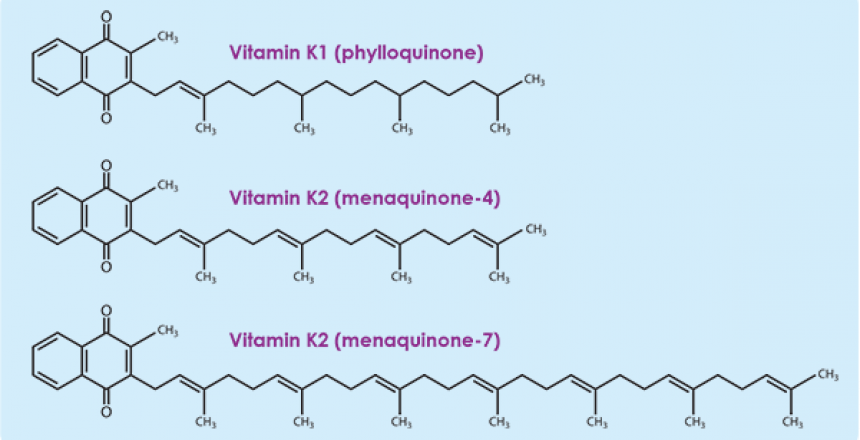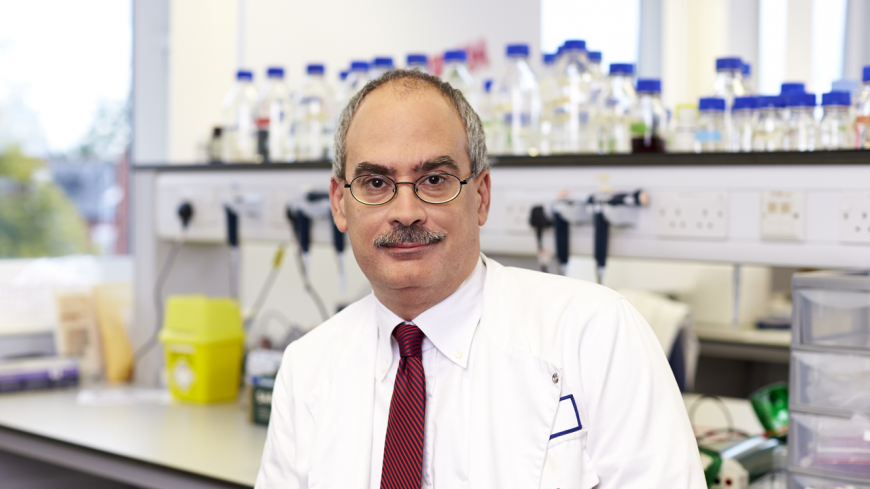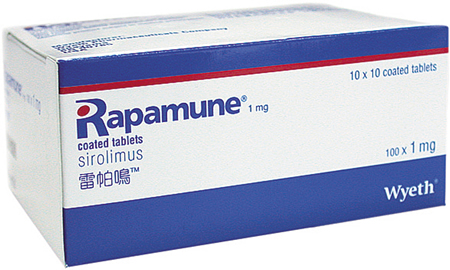Emerging evidence indicates that vitamin K2 plays a large role in the prevention of heart disease and cancer, as well as other conditions. Vitamin K2 is likely one of the vitamins that people are most deficient in – the other being vitamin D – and therefore it may be worthwhile to supplement with it: vitamin K2, heart disease, and cancer.
Vitamin K2 – what it is
Vitamin K refers to a group of fat-soluble vitamins, K1 and K2. Somewhat confusingly, there are several different forms of K2 as well.
Vitamin K1, or phylloquinone, is found in plant foods, mainly green leafy vegetables. K2, or menaquinone, is found in animal foods, mainly dairy.
Vitamin K2 is involved in calcification, hence it’s important for bone density, a big concern for the elderly. Lack of vitamin K is associated with osteoporosis, and supplementing it can prevent it.
Of importance to men, who suffer from higher rates of heart disease in middle age than women, a deficiency of vitamin K2 can lead to calcification of arteries.
One way to look at K2 is that it causes calcification of the correct tissue: bone, and not arteries or other tissues and organs.
The evidence
A study done in The Netherlands found huge differences in heart disease mortality, all-cause mortality, and aortic calcification among subsets of people grouped by vitamin K2 intake: Dietary Intake of Menaquinone Is Associated with a Reduced Risk of Coronary Heart Disease: The Rotterdam Study.
The relative risk of death from coronary artery disease in the highest tertile (third) of vitamin K2 intake was nearly 60% lower than those in the lowest tertile. I’ll take that degree of risk reduction any day of the week.
Risk of all-cause mortality was ~25% less, and the risk of aortic calcification was only about half that of the lowest intake group.
Of importance, intake of phylloquinones, or vitamin K1, was not associated with any of these outcomes.
Another study found that each 10 μg/d intake of vitamin K2 was associated with ~10% lower risk of coronary artery disease. A high menaquinone intake reduces the incidence of coronary heart disease. The highest quartile of vitamin K2 intake in another study had about a 20% lower risk of coronary artery calcification, in line with the other study’s 25% lower rate of aortic calcification: High dietary menaquinone intake is associated with reduced coronary calcification.
These studies of course show associations and not causation, but there are good reasons to believe that causation is involved.
- Vitamin K2 is involved in calcium metabolism; therefore reduced calcification of arteries by vitamin K2 is likely to be causal.
- Since vitamin K2 comes mainly from animal foods, a healthy user effect might be ruled out. People conscientious of their health have reduced their consumption of animal foods over the past several decades, following mainstream advice.
There may also be a relation between vitamin K2 intake and less prostate cancer, though results are only suggestive.
The inverse association between vitamin K2 consumption and lower rates of heart disease makes sense, since one of the functions of vitamin K2 is in calcium metabolism. Calcification of the arteries is a cause of coronary heart disease. Essentially, vitamin K2 gets calcium into the right places, bones instead of arteries.
Vitamin K deficiency may be involved in Alzheimer’s disease too: Low Vitamin K Intakes in Community-Dwelling Elders at an Early Stage of Alzheimer’s Disease.
Types and sources of K2
Given the above evidence – and there’s a lot more – I want to be sure I get adequate vitamin K2.
If you supplement with vitamin D – which I do – you should also be sure to get adequate K2; both are important for calcium homeostasis, so you shouldn’t get one without the other.
Pasture-raised meat and dairy are the best sources of vitamin K2. However, they’re expensive, most people never eat them, and I only seldom do. Feedlot meat and dairy doesn’t have much. Kerrygold butter from Ireland, sold here in the U.S., is a good source, although amounts of K2 also appear to be dependent on the season of the year, so you can’t be sure.
Given all of this, I supplement with K2. It’s the only vitamin I take besides D. Heart disease runs in my family, and I don’t feel like getting it.
I’ve been supplementing with a form of K2 known as MK-4, but I recently switched to the MK7 form. Here’s why:
Comparison of menaquinone-4 and menaquinone-7 bioavailability in healthy women.
The study compared the administration of MK-7 to that of MK-4, and found that “MK-7 was well absorbed and reached maximal serum level at 6 h after intake and was detected up to 48 h after intake. MK-4 was not detectable in the serum of all subjects at any time point..”
We conclude that MK-4 present in food does not contribute to the vitamin K status as measured by serum vitamin K levels. MK-7, however significantly increases serum MK-7 levels and therefore may be of particular importance for extrahepatic tissues.
I immediately bought an MK7 form of vitamin K2. There are many brands and sizes, and this one seems to be the best value.
Conclusion
Vitamin K is important to the health of your arteries. Atherosclerosis is one of the leading causes of death in the developed world.
Therefore, I take a vitamin K supplement. The MK7 form is the one to get.










39 Comments
Excellent post and everyone should be made aware of the importance of k2. Magnesium works in synergy with it and is equally important. I also switched to mk7 but my colleague did an interesting self experiment which has me reconsidering. He had a coronary calcium score done, which everyone should do, and it came back at 24. He took mk7 for several months and had no improvement. He then switched to mk4 and had a dramatic drop in his score down to 11, and it was after just 3 months of usage. I may switch back now .
It seems to me that it’s quite possible that the combination of pine bark, gotu kola,as well as vitamins D and K2, may well prevent coronary artery disease.
Amazing really!
Wow, if that’s the case, the difference between MK-7 and -4 really needs some serious study. According to the article on differential absorption of the 2 forms, MK-7 gets converted to MK-4 once absorbed, it’s just that -4 isn’t absorbed from the gut as well.
Re pine bark, is that Pycnogenol you’re talking about? It does seem like interesting stuff. Improves sperm counts too.
Yes, his results were very impressive, and we gave mk4 to a patient with calcified dental plaque and it totally resolved after a few months.
Pine bark and pycnogenol are the same. Life extension has now done two review articles on how the combination of pine bark with gotu kola prevents coronary artery disease. Check it out. Pine bark at 200mg/ day also improves endurance and stamina rather significantly.
There is a discrepancy about the optimal mk type, mk7 as suggested by you, also the predominant form in natto eaten by healthyJspanese and Paul’s post suggesting mk4 is superior for decalcification. Wikipedia under vitamin K lists a huge number of foods, vegan and meat derived, most of them containing mk4 at low levels. Other nutri gurus are similarly confused about the best mk type. Best bet may be to take both mk4 and mk7 at about 100 ug daily as supplements since their toxicities at these levels is low.
Perhaps the MK-4 isn’t found in the serum because it is immediately consumed?
Good point, maybe so. It seems bizarre that it’s apparently the most active form yet isn’t absorbed well.
Wow, wouldn’t a 50% drop in CAC in 3 mos be considered incredible? (I guess with such a low absolute number it’s not a full-on medical miracle.) I think conventional wisdom considers coronary calcification a one-way street, and even those that don’t suggest that it’s slow recovery/healing process.
I’ll offer that I can absolutely, physically feel the difference on my teeth between when I take MK4 and when I’ve forgotten it for 7-10 days or so. So it’s definitely doing something. I find it completely illogical that the form produced by mammals would be the form not just less bio-active in mammals, but as the paper would suggest bio-inactive.
Something is definitely going on with MK4. I would be more convinced if they could say where it’s going. All they can really say is that they don’t know where it’s going. They surmise it must be going nowhere, ie. staying in the gut, because they can’t measure it where & how they’re looking. Yet, my personal experience is most definitely that it is “not staying in the gut.”
You’re right Allan, the results are incredible, and he just showed them to me last week. The guy is a Harvard trained internist and neither of us could believe it. It certainly suggests that coronary disease may actually be reversed, and through such a simple method. I also couldn’t believe the timelines of this post!
Why hassle about which form to take ? Life Extension sell Super K which has Mk4 & Mk7 in it, plus K1. Covers all bases I think.
1) The cost difference between MK4 & MK7 is over an order of magnitude.
2) The effective dose, at least wrt to osteocalcin carboxylation looks to be about 10-20x different between the two. There’s one study that didn’t see carbox improvements for MK4 at IIRC 500mcg/dy. However, they did see them at 1500mcg/dy. Conversely, MK7, was equally effective at 45 & 90 mcg/dy. One the one hand, you can say, meh, it washes-out wrt to cost — the one 10x more expensive is 10x more effective. But to my mind it indicates there’s something else going with these substances that we don’t understand.
3) Too much K1 causes weird, tingling gums. Bizarre, but I experienced it myself from taking the broadband K. Again, it speaks to something is going on with K vitamins that is not fully understood and these supplements are in doses far beyond what one could get from dietary intake.
Supplement rages come and go. Usually when they go it’s because there was some adverse trade-off that people didn’t understand on the come.
Perhaps relevant, my MK-4 supplement is 5 mg per capsule, a huge dose.
Allan I have never had tingling gums so that is not an issue for me.
The Life Extension ‘Super K’ is pricey. But it does have 1000 mcg of MK 4 and 100mcg of MK7. I usually take 2 capsules a day, so I believe that I am taking enough to get the beneficial effects you describe.
But maybe the 4 mg of MK4 that PD describes would be better. Still thinking that through.
Really, two a day? That is certainly a lot. Are you doing anything else to monitor your health? A lot of vitamins and supplements have a U-shaped curve. How do you know what it’s doing?
As recommended by Chris Masterjohn. See the link provided below Allan
I was going to suggest this product, I’ve been taking it for years after doing NOW MK-7 only for awhile. Why not cover all the bases?
As to Alan’s comments, I don’t understand. Yes the LE is more expensive per pill than the Doctor’s Best, but it has over twice the MK-7 plus the MK-4 and K1. So one would need to double the DB brand dose to get close to the MK-7, and still not have any 4 or 1. And really, is 17 cents a day such an outrage? Even I, on SS can afford that!
Chris Kresser says that MK-4 is found mainly from animal sources, whereas MK-7 is found in some fermented foods. He seems to believe that MK-4 is the better form to take for most people. Here is a link to his 2017 article:
https://kresserinstitute.com/vitamin-k2-consuming-enough/
Is K2 supplementation wise when a person is taking a blood thiner, i.e. warfarin?
It may require dose changes in wwarfarin, so if someone is on a blood thinner they should talk to their doctor about it.
Another great post. Those who want to go overboard on Vitamin K2 reading can view Chris Masterjohn’s extensive body of work on the topic here:
https://chrismasterjohnphd.com/2016/12/03/start-here-for-vitamin-k2/?_sft_post_tag=vitamin-k
If you click on “the Ulitmate Vitimin K2 resource” link there is a searchable database for the vitamin K2 content in foods.
quote from the article ”I supplement with K2. It’s the only vitamin I take besides D. Heart disease runs in my family, and I don’t feel like getting it.”
You don’t take vitamin C? Linus Pauling’s theory hasn’t convinced you?
I guess it hasn’t. If I had heart disease I’d probably give vitamin C and lysine a try though.
PD – been reading you for years and have all your books. Thanks for what you do. We’re the same age – 62. This post was timely for me as I just had a physical and coronary calcium scan. Came back at “89th percentile” for my demographic (62 yr old white male, non-smoker, etc.), meaning I’m in the unenviable range where 88% of my demo has less coronary calcium buildup. Doc wants to put me on statins (LDL 144, HDL 62, Trig 73); I refuse to take them. Because of your post and supplement guides, I’m now exploring K2 in hopes it will reduce calcium. Have you had a calcium scan? Research indicates it’s an accurate marker for heart disease, better than standard lipid profile.
Hi Max – calcium scans are indeed the gold standard for coronary artery disease, but I’ve never had one myself.
Max, your Trig:HDL ratio tells the tale. It should be one or less. Yours is upside down, and you have the CAC score to show for it. K2 may be a great place to start, but good health doesn’t come in a pill. It comes from the hard work of exercise and a clean diet. As you know, donating blood is not a bad thing to add either.
If you have not heard of Ivor Cummins, he has some… shall we say, sobering YouTube videos on CAC.
Good luck to you, sir.
Max – do you generally follow a low carb diet? Carbs (especially carbs from grain products) are usually to blame for high triglycerides. If you are eating more than 100g of carbs daily, I would try to reduce that number first and see what happens. Avoid all grain products and sugar, and maybe even cut back on potatoes for a while. Eat lots of veggies. Also, NEVER consume any of the jug oils (corn, vegetable, safflower, etc)………eat only healthy fats (coconut oil, butter, olive oil). Eat a moderate amount of protein. Also, make sure you do some form of regular exercise (daily walking plus some type of strength exercises occasionally). When I did those things, my triglycerides dropped and my HDL increased. I agree with you about avoiding statins. I’m betting that your numbers will improve if you make some dietary changes.
Rob, a trig score of 72 is great, not a problem. Even by the sloppy, high norms of the medical community, it is very good.
I did get a trig score of 50, IIRC, after months of low carb some years ago.
You’re right, I had misread the numbers. Triglyceride of 72 is not bad. In a situation like this, supplementing with a fairly high-dose K2 would probably be a good idea. Perhaps a daily low-dose aspirin would be appropriate, also? (just thinking of things I might try if I were in the same situation…….don’t take it as medical advice).
It’s not the level, it’s the ratio.
Also, it doesn’t take months to move one’s lipid numbers around. They are about a 3 day look-back of your diet and activity level. Look up Dave Feldman’s blog and twitter for details.
Right, the triglyceride/HDL ratio is important, but if you are below 2.0, you are in good shape (based on everything I’ve read), and he is just above 1.0.
Max, your HDL and trig’s are within a single digit of my 52 yr/old fiance (female!) Her LDL is about 22 points less, not optimum. I did a lot of research, beyond what I already knew from 9 years of health and diet investigating, and discovered that niacin, B3 has long been known to…………….you won’t believe this……………..lower LDL and trigs and raise HDL! It was a fairly common treatment until the introduction of (follow the money here,) statins in the 1980’s!
So we are now both taking niacin ( had been taking niacinimide per PD’s recommendation for months, but it does not have the same serum effects. Dang.) We are using Doctor’s Best Time Release Niacin, 500mg. If I take two at once, I do get some flushing, borderline uncomfortable, at about ten minutes. So, I just keep the bottle here at the computer and pop one when I think about during the course of a day. Therapeutic doses are 2-3 grams a day.
You can find a lot of information on this, especially if you add Dr. Hoff to your searches.
Based on the research of Chris Masterjohn Phd
https://chrismasterjohnphd.com/2016/12/10/whats-new-with-vitamin-k2/
I supplement with MK-4 and get MK-7 from cheese and fermented foods. The idea that MK-7 is more bioavailable because of its longer half life is simplistic. MK-4 is immediately taken up into the tissues and does not stay in the blood. MK-4 is known to alter gene expression and has anti cancer effects.
Why are you not bothered by the low n in the study? The MK-4 vs. Mk-7 single dose was 5 people vs. 5 people. The MK-4 vs. MK-7 daily dose was also 5 people vs. 5 people.
Because the outcome was a simple dose-response measure, and the result, no MK4 detectable, was very clear cut.
I have also read that if you aren’t getting sufficent magnesium you may be wasting your vitamin d supplementation.
RE: vitamin K2
A really interesting thing about MK-4 is that it is the only form of K2 not made by fermentation.
MK-4 is the form of vitamin K2 highest in our tissues.
It is available in diet, but the majority of it is endogenously made in our tissues in a process of vitamin K3, transported via the lymph system to these tissues where the enzyme, UBIAD1 turns the vitamin K3 into MK-4.
This enzyme, UBIAD1, also controls calcium and cholesterol behavior in cells and in us.
For example, supplemental vitamin K2 reduced cholesterol in CKD patients, which then rebounded to previous levels when the supplementation stopped.
Has anyone pursued this in healthy folks? Not so far to my knowledge.
The control of calcium is one of the fundamental things about vitamin K that deserves more attention on both the measurable levels (in arteries or bones/teeth) as well as the effects on calcium as a signaling molecule.
Turns out that cancer is literally addicted to calcium. If a cancer cell cannot tap into calcium from the ER, it dies, but healthy cells, instead, go into autophagy.
But to address the comments regarding ‘optimal’ forms to eat/take as a supplement…it is important to know that dietary vitamin K (all forms, including K1) are cleaved in the intestine and converted into vitamin K3 which is then transported to distant tissues for this conversion into MK-4.
This appears to be why so little is measurable in the serum…we are looking in the wrong places.
Yes, there is measurable K2 in serum, but many have noted how little there is and this appears to be why.
Also, just last year a medical ‘known’ was overturned where it had always been cited that there are no lymph vessels in the brain – a barrier was cited. Yet now it is known that there are there and we just missed them.
MK-4 is huge in brain. It is also huge in thyroids, if rodents are representative, and I would suggest that looking into this thyroid store of MK-4 or its inhibition, if this is a fact in today’s population, might offer suggestions as to what happened to us to make us all so fat.
I am not a fan of supplements. I don’t think that we know enough to pursue them as much as so many do, but long chain K2 in diet is available in fermented dairy (full fat, of course) as well as some foods we have tended to lose such as organ meats, offal, stock as well as a wide variety of fermented foods beyond just dairy.
Look it up – we finally measured K2 content, based on the many forms of long chain K2, in US dairy and low and behold! Artisan cheeses were the winners! And reducing fat (where the K2 ‘lives’) lost the K2.
Sorry to ramble so, but the idea that something consumed is ‘taken up’ by tissues is not quite correct.
Instead, it was converted in the small intestine and then transported to distant tissues where it is then re-converted into MK-4. That will include all forms of dietary vitamin K.
We need trials of supplemental vitamin K2 in various forms and various dosages to be done and then measure of cholesterol, maybe BP, and other parameters. This is the reason for cholesterol misunderstanding – it is indirectly related to vitamin K status.
Those widely disparaged ‘saturated fats’ are also misunderstood – they often (usually) contain K2.
When we switched to hydrogenated vitamin K1 oils (soy and canola), we created dihydrophylloquinone, an aberrant form of vitamin K that does not act as natural forms of K. This is why the so-called trans fatty acids lead to health woes – they don’t just land in arteries, they lead to calcium deposition and other effects.
In fact, basing dietary fats categories on bonds (saturated, unsaturated, monosaturated, etc) is not really pertinent to health effects (though that is the entire basis of the literature), and instead we need to consider the fat soluble nutrients in the dietary fats.
I believe that the 1980 dietary guidelines, which happen to directly coincide with the beginning of the obesity epidemic, caused this epidemic because they led to loss of vitamin K2 in the American diet and they led to the food industry making all kinds of toxic changes to compensate for the lost ‘saturated fats’ such as emulsifiers/hydrogenated fats/other additives.
Many of these novel additives impair the microbiome in a wide variety of ways, all of which are unhealthy and are unidentified.
Lose those old fashioned fats and you get some bad things!
I forgot to mention that statins lead to CAC.
I note that some discuss them, but doesn’t it seem counter-intuitive to make for more CAC?
They do this by interfering with the pathways of vitamin K2.
Some really interesting Japanese lipid pharmacologists have studied this, but they are not brought to the discussion of statins.
Mess up K2 and its actions and you get messed up calcium, messed up cholesterol, and bad things such as CVD, cancer, diabetes, obesity, fractures, bad teeth and more (like autoimmune diseases).
Also, osteocalcin, one of the vitamin K-dependent proteins beyond the coagulation cascade, needs sufficient vitamin D to be created in humans. This is where we differ from rodents, that utilize vitamin C instead. Humans need to consume vitamin C, and essential vitamin, but we don’t use it to create osteocalcin.
This may be an argument for supplementation of vitamin D and it may explain why so few understand why only vitamin D and calcium supplementation is not helpful – sometimes found to increase CVD risk – since all these work together to make for optimal health. Get enough D and calcium (I don’t think calcium supplementation makes any sense for most) with messed up K status, and you are heading to bad things.
Micki, thanks for your comments. I discussed the statin-calcification connection here.
Great job!
Sorry I missed it…just found you while searching K2.
You’re spot-on, IMO.
I did a little N=1 experiment on the great K2 debate that folks might be interested in. Enjoy.